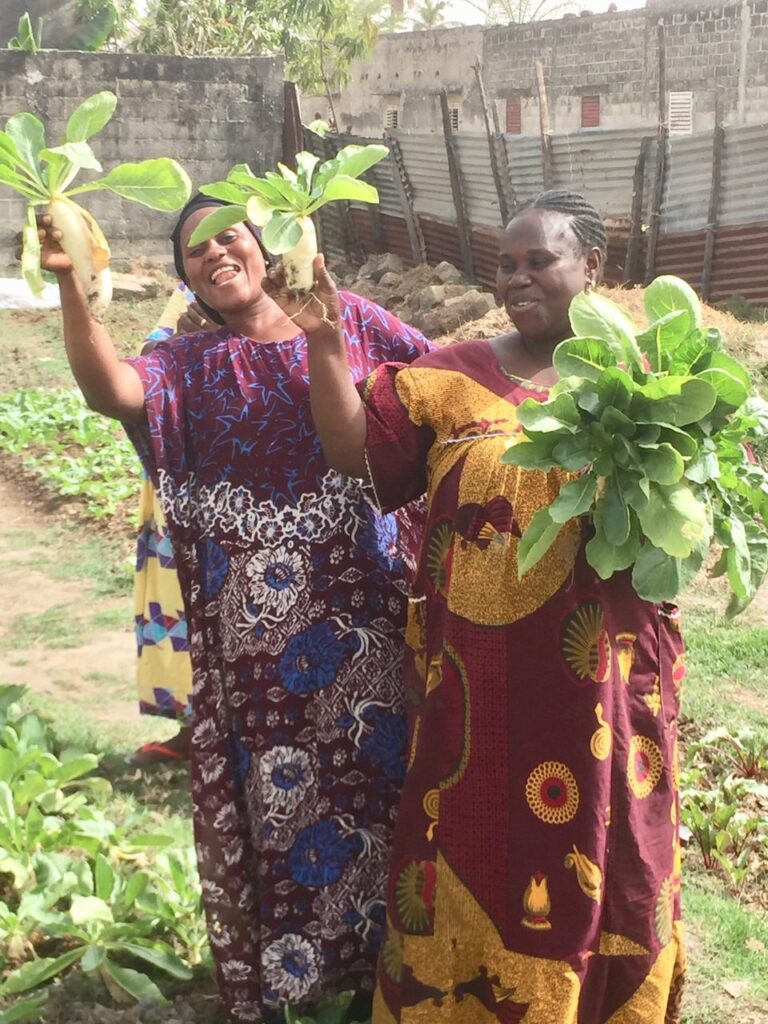
An RPCV Garden Taking DIG Back To Its Roots
September 23, 2021
Inspired by a group of returned Peace Corps volunteers, 24 donors came together to sponsor the cost of training an additional DIG group in Ziguinchor, Senegal.

September 23, 2021
Inspired by a group of returned Peace Corps volunteers, 24 donors came together to sponsor the cost of training an additional DIG group in Ziguinchor, Senegal.
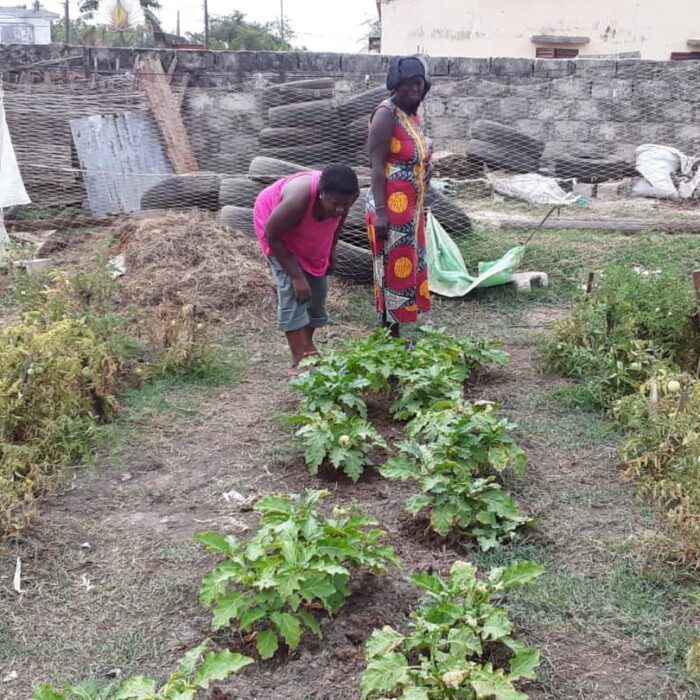
Rooted in the belief that food is a powerful leverage point for changing the world, DIG is focused on using regenerative agriculture to improve the nutrition, livelihoods, and wellbeing of some of the world’s most uniquely vulnerable communities.
We believe that meaningful change happens in community, and community is built on trust and strong relationships. This core value came from DIG’s origins in Peace Corps. Founded by two US Peace Corps volunteers who served in Senegal, West Africa from 2005-2007, DIG has designed an adaptive program that lets communities lead.
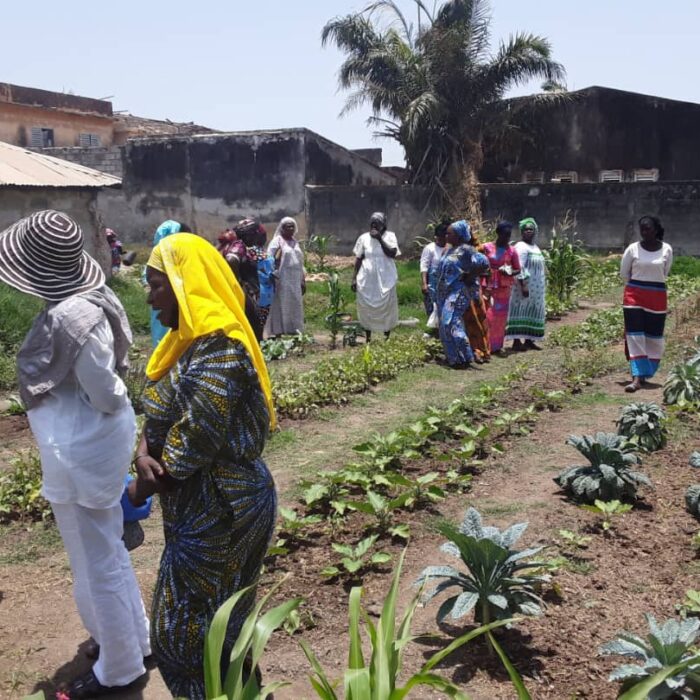
Since implementing DIG’s 2006 flagship garden in Senegal, we have established programs in eight African countries, impacting the lives of over 50k people. Having worked with so many unique communities, cultures, and partners, our journey has taken us back to Senegal to establish new programs in the southern city of Ziguinchor.
In 2020, when the world was being devastated by the Covid19 pandemic, a group of returned Peace Corps Volunteers who served in Senegal with DIG’s founders, Sarah Koch and Steve Bolinger, came together to raise support to grow DIG’s work in the West African country.
A total of 24 people donated over $10k which allowed DIG the flexibility to grow our work in Senegal where we saw the need. This is one of the gardens these donors helped make happen.
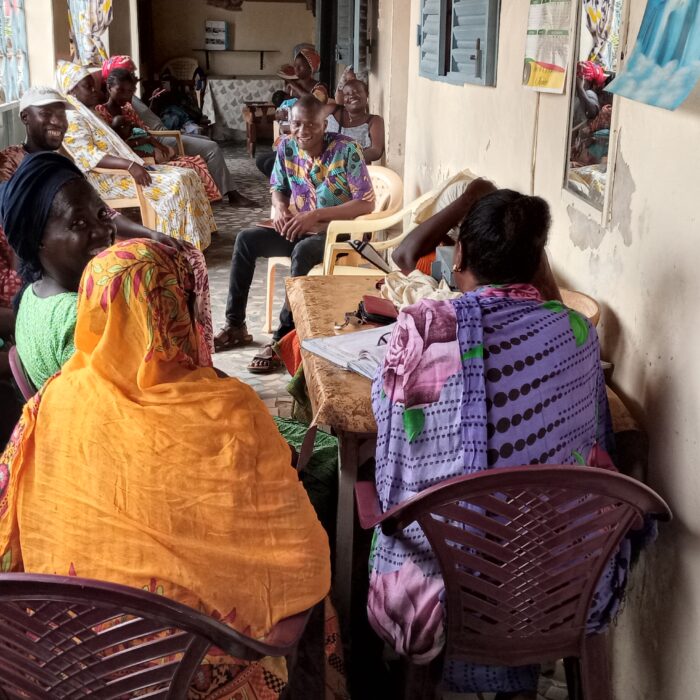
When DIG came back to Senegal in 2019, we did so in partnership with the Senegalese Ministry of Health. Identifying key hospitals, clinics and health posts in the Cassamance region, DIG was able to integrate our program into a more wholistic vision of health for the broader Ziguinchor community.
In a relatively short amount of time, our presence created a buzz and additional groups started approaching DIG to get involved. The Group de Femmes, or Women’s Association, at Santihaba clinic was one of those groups.
Many of the Santihaba women are divorced and rely on their single income to provide for their families. Like many single mothers, their challenges are unique and particularly limiting — not enough time, juggling multiple jobs for little pay, acting as sole provider and caretaker to their families, and more. This group of women took it upon themselves to see how they could leverage the little money they earned and grow it by forming an association and working together.
When DIG met them they were already buying household goods like soap, oil, and clothes in bulk and selling them to the group members at cost, cutting household expenses.
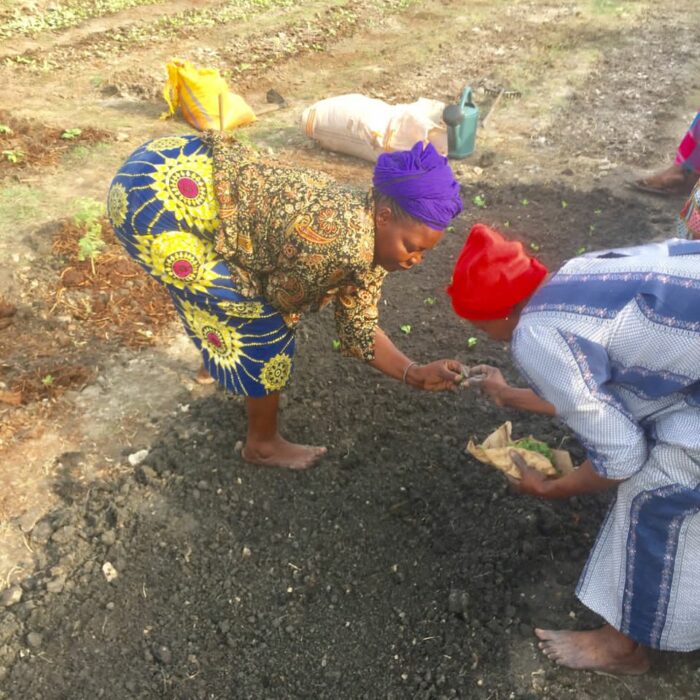
When Dimingua, the leader of the Group de Femmes, learned about DIG, she saw how growing vegetables could be a new pathway to income for her dedicated group.
Because Ziguinchor is mostly urban, very few of the women farmed, and while they knew very little about growing, they had the curiosity and vision to give it a try.
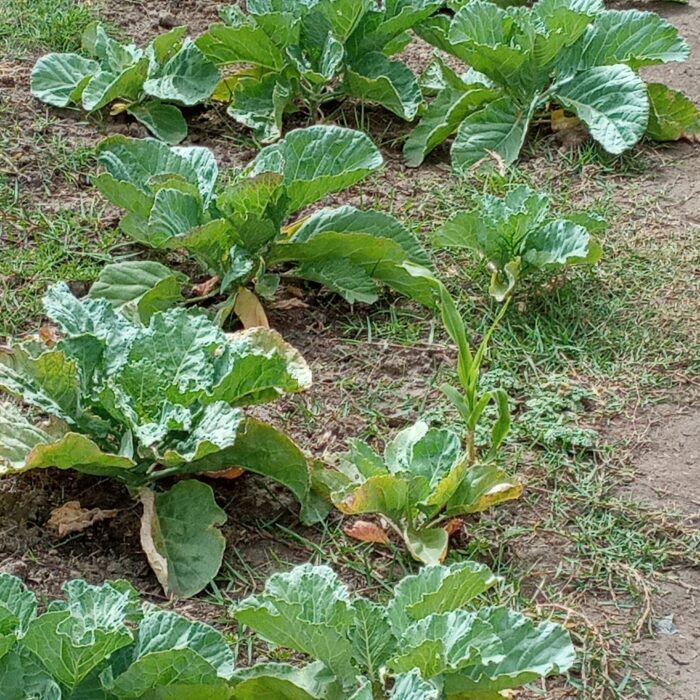
Joining DIG towards the end of 2020, the group used the land secured by DIG at the Santihaba Health post. The garden was situated right within their community, removing one important barrier for this busy group of working women.
Looking at the small piece of land and knowing that the rains had already ended, many in the group were skeptical if the garden would succeed. But, with the confidence of their DIG facilitator, Seckou Badji, and the trust in Dimingua’s vision, the group slowly started to transform the small piece of land into an abundant garden.
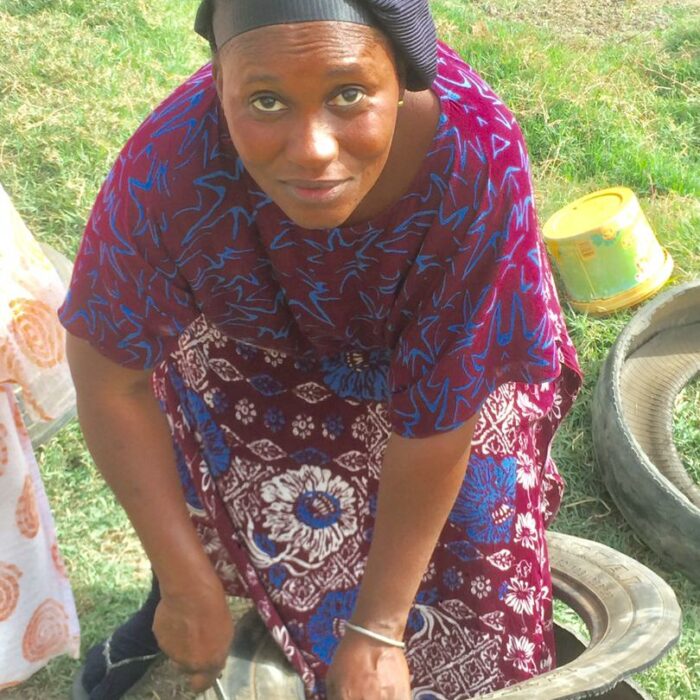
They used discarded tires to create rich soil beds, they squeeze rice sack beds into corners to maximize space and one-by-one, vegetables started springing up and showing signs that this garden would succeed.
Seckou taught the group important water conservation practices like mulching, cultivating sunken beds, and using low-cost drip irrigation. This all helped them grow a their lush garden outside of the traditional growing season. It also saved them time which is one thing a single mother never has enough of.
After seeing the very first signs of growth, these women were all in. Seckou says “Each week, these women would meet with such enthusiasm; singing, dancing, and ready to learn how to garden. These motivation and cohesiveness of this group is really what has made them successful.” Together, the women saw their first harvest and used the money to invest into expanding their gardens to their homes.
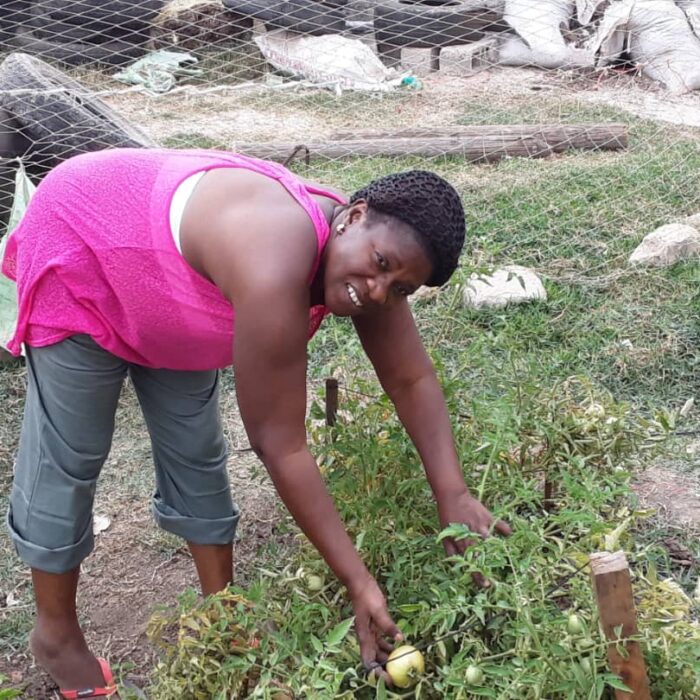
These resourceful moms chose highly nutritious crops that could be easily integrated into their family’s meals. They selected okra, moringa, hibiscus (or bissap as its locally known) and others. Their harvests not only helped them reduce their food costs, it more importantly, gave them back control over their food security.
Since they started, these women have taken what they learned in their group garden back to their new home garden efforts. They also have plans to expand their group garden with the shared pursuit of growing vegetables that help them easily put food on their tables and save.